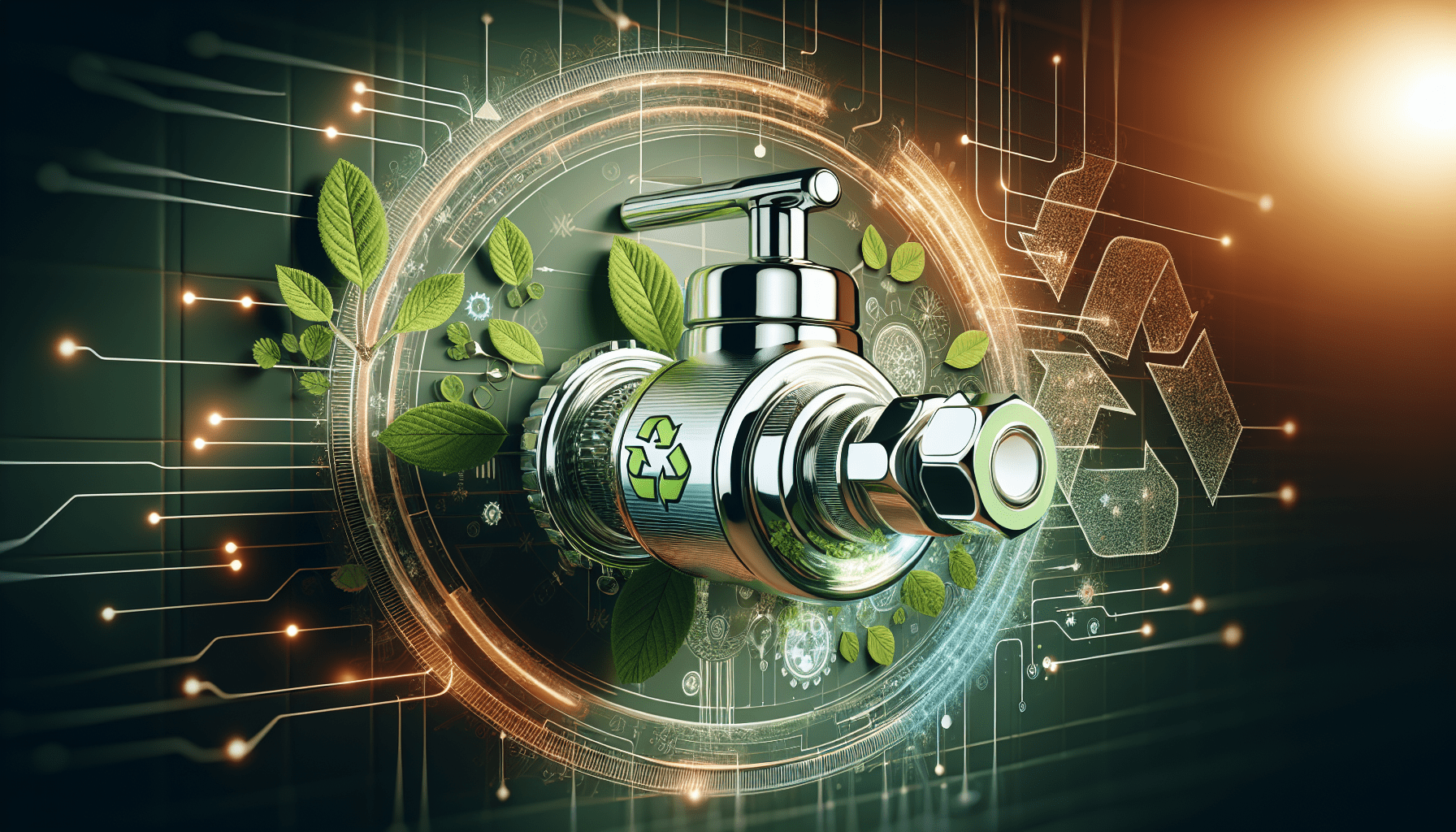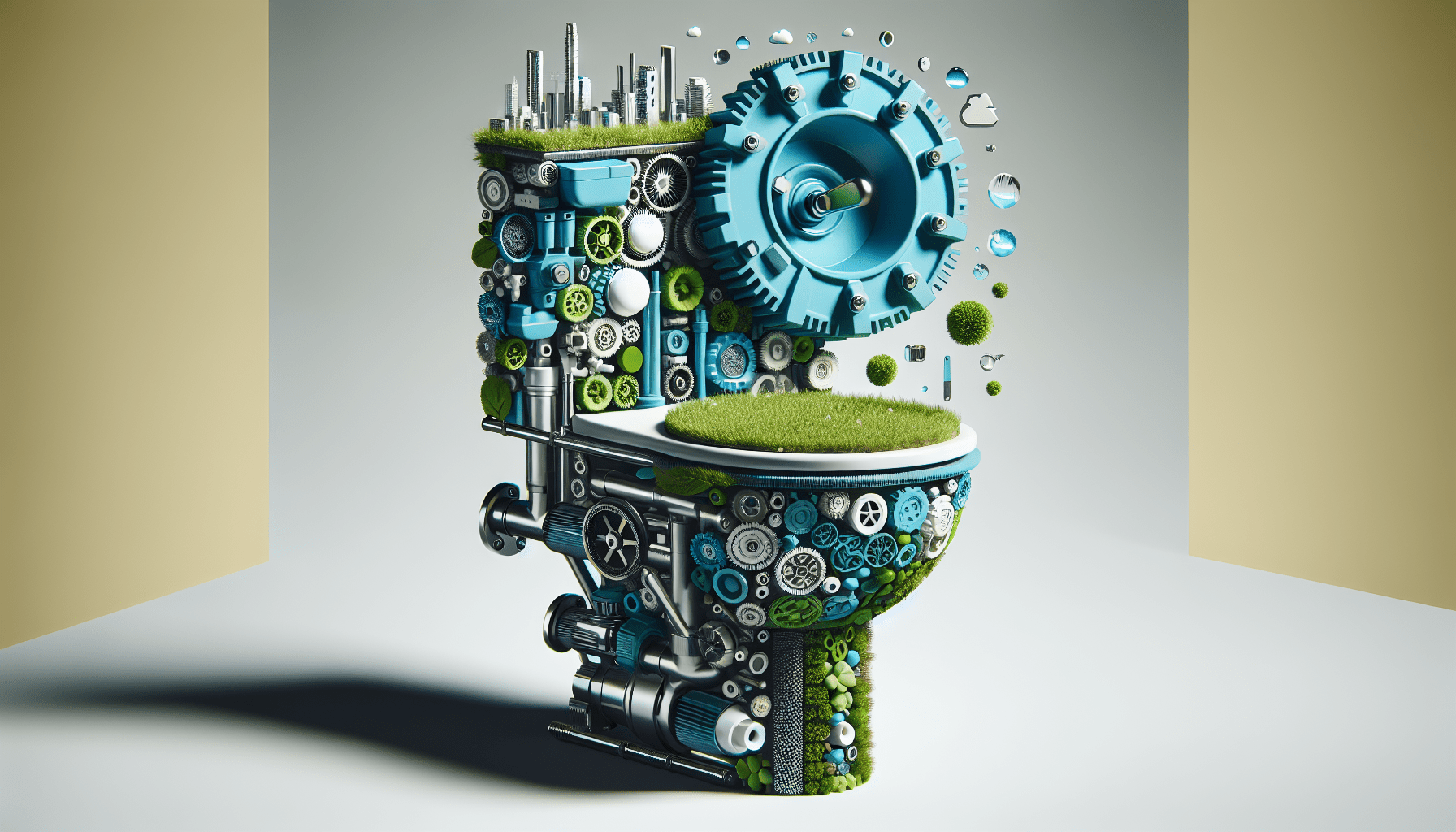Imagine a world where water scarcity is a thing of the past, where plumbing systems are designed to adapt to changing climate conditions, and where sustainable practices are at the forefront. The future of plumbing in the age of climate change holds great promise, as it focuses on innovative technologies and environmentally friendly solutions. From rainwater harvesting to water-efficient fixtures, this article explores how plumbing is evolving to play a pivotal role in addressing the challenges posed by climate change. Join us as we embark on a journey to discover the exciting possibilities that lie ahead for the plumbing industry.
Water Conservation and Efficiency
In the face of climate change and the increasing scarcity of water resources, improving water-use efficiency in plumbing fixtures is becoming crucial. By adopting water-saving technologies and practices, we can make a significant impact on water conservation. Technological innovations such as low-flow toilets, water-efficient faucets, and showerheads have emerged as effective solutions for reducing water consumption. These fixtures are designed to minimize water usage without compromising performance or convenience. Their widespread adoption can lead to substantial water savings, benefiting both the environment and the household’s water bill.
Renewable Energy Integration
Renewable energy sources like solar and wind power present promising opportunities for the plumbing industry to contribute to a sustainable future. By harnessing solar energy for water heating purposes, we can significantly reduce the energy requirements of traditional water heaters. Solar water heating systems utilize sunlight to heat water, which is not only environmentally friendly but also cost-effective in the long run. Similarly, the integration of wind power for water pumping can reduce reliance on fossil-fuel-powered pumps and ensure a greener approach to water distribution. These innovations in renewable energy integration in plumbing systems have the potential to revolutionize the way we consume and distribute water while reducing our carbon footprint.

Sustainable Material Selection
Shifting towards eco-friendly plumbing materials is another crucial aspect of sustainable plumbing practices. Traditional plumbing materials like PVC pipes and fixtures have been associated with environmental concerns because of their dispoability and non-biodegradability. Fortunately, a variety of sustainable alternatives such as cross-linked polyethylene (PEX), recycled copper, and cast iron have emerged in recent years. These materials are not only more environmentally friendly, but they also offer enhanced durability and longevity. By promoting the use of recycled plumbing products, we can minimize waste and conserve resources. Embracing sustainable material selection in plumbing can contribute significantly to reducing our environmental impact and creating a more sustainable future.
Smart Plumbing Systems
Advancements in Internet of Things (IoT) technology are transforming various industries, and plumbing is no exception. Smart plumbing systems equipped with sensors, remote control capabilities, and real-time monitoring are revolutionizing water consumption management. These systems enable homeowners to track their water usage, detect leaks, and optimize water efficiency. By integrating smart sensors into plumbing systems, we can effectively monitor and control water consumption, helping us identify areas for improvement and make adjustments accordingly. Moreover, the integration of smart plumbing systems with smart home systems allows for seamless coordination and automation, enhancing convenience and efficiency. Embracing these technological advancements in plumbing can help us conserve water, reduce wastage, and create a more sustainable and connected future.

Water Quality and Treatment
The availability of safe drinking water is a growing concern in the face of climate change. Rising temperatures, altered weather patterns, and increased pollution pose challenges to the quality and availability of drinking water sources. Therefore, it is essential to develop climate-resilient water treatment methods to ensure access to clean and safe water. Advanced water filtration technologies play a crucial role in removing contaminants, including chemicals and microorganisms, from water sources. Integrating these technologies into water treatment systems can provide a higher level of protection and ensure the provision of safe drinking water, even in the face of changing environmental conditions. By actively investing in the development and adoption of these technologies, we can mitigate the risks associated with climate change and protect public health.
Stormwater Management and Flood Prevention
With the increase in extreme weather events and urbanization, proper stormwater management and flood prevention measures are essential in ensuring community resilience. Implementing sustainable stormwater management practices, such as green infrastructure, can help mitigate the adverse effects of heavy rainfall and reduce the strain on existing drainage systems. Green infrastructure, which includes techniques like rain gardens, porous pavements, and green roofs, allows for natural water infiltration, reducing runoff and preventing flooding. Integrating plumbing systems into urban planning can further enhance flood prevention efforts by optimizing drainage systems and ensuring efficient water flow. By prioritizing stormwater management and flood prevention strategies, we can protect our communities, safeguard property, and minimize the impact of climate change-induced extreme weather events.
Adaptation and Resilience of Plumbing Infrastructure
As climate change brings about more frequent and severe weather events, it is crucial to design plumbing systems that can withstand these challenges. Plumbing infrastructure must be built to endure climate extremes such as intense storms, flooding, and extreme temperatures. Additionally, upgrading aging infrastructure is necessary to improve resilience and minimize the risk of failure in the face of changing environmental conditions. Implementing flood-proof plumbing systems can help prevent damage and enable a quick recovery in flood-prone areas. By prioritizing the adaptation and resilience of plumbing infrastructure, we can ensure the efficient and reliable delivery of water services, even in the most challenging circumstances brought on by climate change.
Education and Training for Plumbers
Plumbers play a vital role in implementing sustainable plumbing practices and mitigating the impact of climate change. Increasing their awareness of climate change impacts and providing them with the necessary training is crucial for promoting sustainable plumbing practices. As plumbing systems become more technologically advanced, it is essential for plumbers to stay updated on the latest advancements and techniques. Training programs on sustainable plumbing practices can help plumbers understand the importance of water conservation, renewable energy integration, and climate-resilient infrastructure. Furthermore, promoting certification programs for climate-resilient plumbing can ensure the highest quality of work and encourage the adoption of sustainable practices across the industry. By investing in the education and training of plumbers, we can empower them to be agents of change and champions of sustainability.
Policy, Regulations, and Incentives
To promote sustainable plumbing practices, the development of policies, regulations, and incentives is necessary. Governments and regulatory bodies can create policies that require the implementation of sustainable plumbing practices in new construction and renovations. Building codes can be updated to include specific guidelines for climate-resilient plumbing systems, ensuring that all new structures are designed to withstand and adapt to changing conditions. Additionally, providing incentives for eco-friendly plumbing installations, such as tax credits or rebates, can encourage homeowners and businesses to adopt sustainable practices. By aligning policy, regulations, and incentives with sustainability goals, we can accelerate the adoption of climate-resilient plumbing practices and create a more sustainable built environment.
Collaboration and Research
Collaboration between plumbers, scientists, and engineers is vital in advancing sustainable plumbing solutions. By strengthening partnerships and fostering communication between these disciplines, we can leverage expertise and innovation to develop climate-adaptive plumbing solutions. Investing in research for climate-responsive plumbing technologies can further drive innovation and pave the way for effective and practical solutions. It is important to share best practices and lessons learned across the plumbing industry to facilitate knowledge transfer and encourage continuous improvement. By collaborating and investing in research, we can collectively address the challenges posed by climate change and create a more sustainable future for plumbing.

